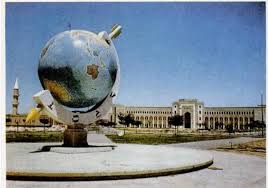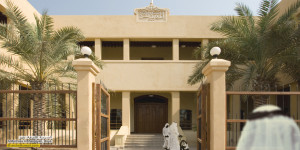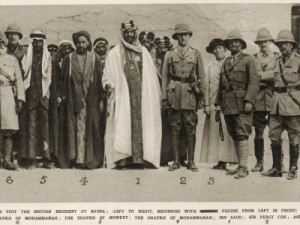On June 4 1967, most Arab peoples were expecting a victory over Israel. Or so they were told by their regimes, all of their regimes. Given the size of Israel at the time, an Arab victory and an Israeli defeat would have meant a reversal of 1948, when Israel replaced Palestine. Not completely: Arabs still controlled Gaza, the West Bank, and East Jerusalem, all of them parts of Mandate Palestine. But the Jordanians who held onto the West Bank and East Jerusalem were not eager to develop a Palestinian entity, and Gaza remained neglected under Egyptian control.
So, on the morning of June 5, 1967, the Israeli Air Force struck, and quickly destroyed Arab air forces. Arab regimes continued to claim their forces were on the outskirts of Tel Aviv even as Israelis were sweeping though Sinai. By afternoon the war was effectively over. Mop up operations secured the Sinai for the second time in eleven years. The Jordanians basically put up a half hearted fight for the West Bank and East Jerusalem (King Hussin must have thought the Egyptian army will hand him the rest of Jerusalem).
The biggest loss of Arab land in modern history took barely more than one day. So much for the vaunted Arab Army of Jordan.
But what is shocking now, looking back, is that even after that huge defeat the Arab world was better of than it is now, June 2017. Fifty years later.
Before June 1967 the Arabs had already lost one war, the war for Palestine. Now we know that the loss of Palestine was the beginning: the Arab states have continued to lose every single war against outsiders. With the exception of Lebanon in 2000 and 2006.
Before 1967 there was hope, pride, exuberance. The Arab world was young, most of it recently independent, some of it getting there. There was hope that it can progress, perhaps unite and improve its lot. Young people were sure, they were certain that they were facing a bright future. Most of the students who came to the West, especially to the United States, looked forward towards to returning home and helping build or rebuild. Most did not think of immigration.
After 1967, with pan-Arab secularism defeated, Wahhabism ran unchecked. Fueled with oil money, it busted out of its Saudi desert homeland and spread its poison through mosques and schools that spread in poorer Muslim lands. This was the ideological and financial basis of Al Qaeda and ISIS/DAESH. It still is.
Fast forward to June 2017. Half a century of defeats, dictatorship, absolute tribal rule, and internal Arab wars. Crowned with the tragedy that Westerners, and some Arabs, thought was an Arab Spring. It turned out to be anything but a spring. All rebellions against exiting order failed, from Bahrain to Yemen to Syria, to Egypt, and North Africa.Those states that succeeded in overthrowing their rulers ended with civil wars.
Now the fate of the Arabs is almost totally in foreign hands. The interactions among the West, Iran, Turkey, Israel, and Russia determine the future. A couple of absolute repressive tribal ruling families dominate domestic Arab politics. Not what the Arabs need just now. They have managed to buy many of the other Arab regimes, and they have possibly bought off the current President of the United States. Ignorant of history, Trump and his British counterpart have given the oligarchs a carte blanche to do what they want, what they can do, in the Gulf and in the rest of the region. They are also giving them all the weapons they need to start new wars and suffer more defeats.
So, here the region stands. Sophisticated expensive American and British weapons in the hands of repressive regimes will not create stability, not for long. Some foolish young prince is bound to start a fire that would engulf the region, just like Saddam Hussein brought on thirty years of warfare.
The hope has faded, and there is hardly any light at the end of the tunnel, regardless of what some well-meaning Western analysts and academics opine.
Cheers
Mohammed Haider Ghuloum







